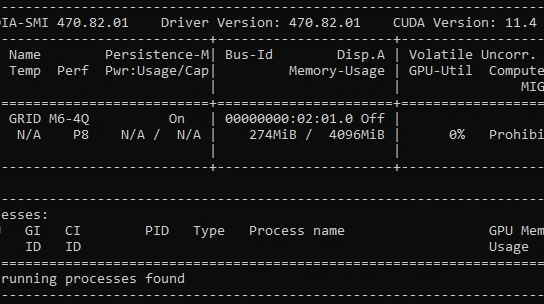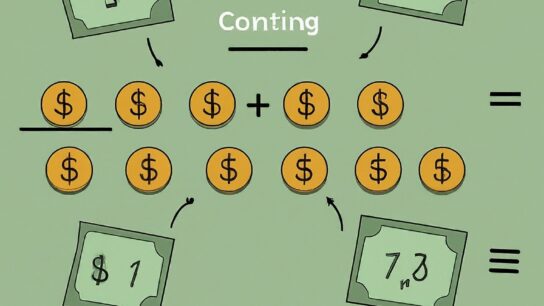In the digital age, making money online has become as common as ordering a pizza or streaming a movie. However, not all online income streams are created equal. While many people find legitimate ways to make a living online, some choose to explore the murky waters of less ethical, or “dirty,” methods to boost their earnings. This blog post dives deep into the various dirty ways to make money online, examining their mechanisms, risks, and the ethical implications associated with them.

Table of Contents
What Are “Dirty” Ways to Make Money Online?
When we talk about “dirty ways to make money online,” we’re referring to methods that involve questionable ethics or legality. These practices often exploit loopholes in the system, deceive users, or take advantage of less informed individuals. Some of these dirty ways might offer quick financial gains but often come with significant risks and consequences.
1. Online Scams and Fraud

Online scams and fraud are perhaps the most notorious dirty ways to make money online. These activities range from phishing schemes to elaborate Ponzi schemes that promise high returns with minimal effort. Here’s a closer look at some of these scams:
- Phishing Schemes: These involve tricking people into providing sensitive information, such as bank account details or personal identification numbers. The scammers then use this information to commit identity theft or drain victims’ bank accounts. For more details on how phishing works, check out Phishing.org.
- Ponzi Schemes: These are investment scams where returns are paid to earlier investors using the capital of newer investors, rather than from profit earned by the operation of a legitimate business. For an overview of how Ponzi schemes operate, visit SEC.gov.
- Advance Fee Scams: Scammers promise large sums of money or valuable items in exchange for a small upfront payment. Once the payment is made, the scammer disappears, and the victim is left with nothing. Learn more about these scams at FBI.gov.
2. Affiliate Fraud

Affiliate marketing can be a legitimate source of income, but some individuals engage in affiliate fraud as a dirty way to make money online. This typically involves:
- Fake Clicks and Leads: Fraudsters use bots or click farms to artificially inflate traffic or lead counts. This deceives companies into paying commissions for non-existent sales or clicks. To understand the impact of affiliate fraud, check out The Affiliate Marketing Hub.
- Misleading Promotions: Affiliates might create misleading advertisements or fake reviews to drive traffic. This tactic exploits consumer trust and undermines the integrity of the marketing industry. For more information on maintaining ethical affiliate practices, visit Affiliate Summit.
3. Selling Stolen Data

Another dirty way to make money online involves selling stolen or hacked data. This includes:
- Personal Information: Cybercriminals steal personal data from breaches and sell it on the dark web. This can include anything from social security numbers to credit card details. For insights into data breaches and their implications, see Have I Been Pwned.
- Login Credentials: Access to compromised accounts is sold to other criminals or hackers who exploit these credentials for further illegal activities. Learn more about protecting your login credentials at StaySafeOnline.
4. Fake Online Contests and Surveys

Creating fake online contests or surveys is another way some people make money unethically. This usually involves:
- Data Harvesting: Scammers use fake contests or surveys to collect personal information from participants. This data is then sold or used for other malicious purposes. For tips on recognizing and avoiding fake contests, visit Consumer Reports.
- Prize Scams: Fraudsters promise prizes but require participants to pay fees or provide personal information to claim their supposed winnings. To learn more about how to identify prize scams, check out Scamwatch.
5. Cryptocurrency Scams

The rise of cryptocurrencies has also led to a surge in dirty ways to make money online, including:
- Pump and Dump Schemes: Scammers artificially inflate the price of a cryptocurrency through misleading information and then sell off their assets at the inflated price, leaving other investors with worthless coins. For more on cryptocurrency scams, visit Cointelegraph.
- Fake ICOs (Initial Coin Offerings): Fraudsters launch fake ICOs to raise funds for non-existent cryptocurrencies or blockchain projects. They disappear with the invested money once the ICO ends. Learn more about ICO risks at CoinDesk.
6. Content Plagiarism

Plagiarizing content is a dirty way to make money online by:
- Copying and Monetizing: Some individuals copy content from other sources and republish it on their own websites or blogs to generate ad revenue. This practice not only infringes on copyright laws but also undermines original creators. For guidance on respecting copyright, check Copyright.gov.
- Using AI to Generate Plagiarized Content: With advancements in AI, some use these tools to generate content that closely mimics existing work. This raises ethical concerns about originality and authorship. To explore the debate on AI-generated content, visit TechCrunch.
7. Clickbait and Fake News

Clickbait and fake news are dirty ways to attract online traffic and make money through ad revenue or affiliate commissions:
- Clickbait Titles: Using misleading or sensational headlines to attract clicks can result in high ad revenue but misleads readers. Learn about the impact of clickbait at Nieman Lab.
- Fake News Sites: Creating fake news stories to generate clicks and ad revenue exploits public trust and can have serious societal consequences. For more on combating fake news, check out FactCheck.org.
The Consequences of Dirty Ways to Make Money Online
While dirty ways to make money online might offer short-term financial benefits, they often come with significant risks:
- Legal Repercussions: Engaging in illegal activities online can lead to criminal charges, fines, or even imprisonment. For information on online legal issues, visit LegalZoom.
- Reputation Damage: Being caught participating in unethical practices can severely damage one’s professional and personal reputation. For tips on managing your online reputation, see Reputation.com.
- Loss of Trust: Engaging in deceptive practices erodes trust with clients, customers, and partners, making it harder to build sustainable, legitimate business ventures.
FAQs about Dirty Ways to Make Money Online
What are some common examples of dirty ways to make money online?
Common examples include online scams (such as phishing and Ponzi schemes), affiliate fraud, selling stolen data, fake online contests and surveys, cryptocurrency scams, content plagiarism, and clickbait or fake news. These practices often involve deception, illegality, or unethical behavior.
Are there legal consequences for participating in dirty ways to make money online?
Yes, participating in illegal online activities can lead to serious legal consequences, including criminal charges, fines, and imprisonment. It’s essential to understand the legal implications of any online activity and seek legal advice if you’re unsure. For more information on legal issues related to online activities, visit LegalZoom.
How can I protect myself from falling victim to online scams?
To protect yourself from online scams, educate yourself about common scams, verify the legitimacy of offers before investing time or money, and use trusted sources for information. Websites like FTC.gov provide valuable resources on recognizing and avoiding scams.
What should I do if I suspect I’ve encountered a phishing scam?
If you suspect you’ve encountered a phishing scam, do not click on any links or provide any personal information. Report the phishing attempt to the relevant authorities or organizations, such as Phishing.org or your bank. Additionally, update your passwords and monitor your accounts for any suspicious activity.
How can I report fraudulent activities or scams?
You can report fraudulent activities or scams to various organizations depending on the nature of the scam. For online scams, report to FBI.gov or Scamwatch. If it involves financial fraud, you may also contact your bank or financial institution.
What are the ethical considerations of making money online?
Ethical considerations include ensuring transparency, honesty, and respect for others’ intellectual property. Avoid engaging in deceptive practices, respect user privacy, and strive to provide genuine value through your online activities. For guidance on ethical online practices, visit Entrepreneur.com.
How can I verify the legitimacy of online business opportunities?
To verify the legitimacy of online business opportunities, research the company or individual offering the opportunity, check for reviews or testimonials, and look for any red flags such as promises of guaranteed high returns with little effort. Use trusted resources and consult reviews from reputable sites.
What are the risks associated with cryptocurrency scams?
Cryptocurrency scams can result in significant financial losses, as scammers often use deceptive practices to inflate the value of cryptocurrencies or create fake investment opportunities. These scams can also lead to legal issues if involved in fraudulent activities. For more on cryptocurrency scams, visit Cointelegraph.
How can I identify and avoid fake online contests?
To identify and avoid fake online contests, check the credibility of the contest organizers, look for signs of legitimacy such as contact information and official rules, and be wary of any requests for personal information or payments to claim prizes. For more tips on avoiding fake contests, visit Consumer Reports.
Why is content plagiarism considered unethical?
Content plagiarism is considered unethical because it involves taking someone else’s work and presenting it as your own without proper attribution. This practice infringes on copyright laws and undermines the efforts of original creators. For guidance on respecting copyright, check Copyright.gov.
What are the implications of using AI to generate plagiarized content?
Using AI to generate plagiarized content raises ethical concerns about originality and authorship. It can lead to legal issues and damage reputations if it involves copying or closely mimicking existing work. Explore the debate on AI-generated content at TechCrunch.
How can I maintain an ethical online presence?
Maintaining an ethical online presence involves being transparent, honest, and respectful in all your online activities. Avoid deceptive practices, respect others’ intellectual property, and focus on providing genuine value to your audience. For more tips, visit Reputation.com.
Conclusion
Exploring dirty ways to make money online might seem tempting due to the allure of quick financial gains, but these methods come with significant risks and ethical dilemmas. From scams and fraud to misleading promotions and fake content, these practices not only jeopardize your financial stability but also harm others and undermine trust in the digital economy.
Instead of resorting to unethical methods, consider focusing on legitimate and ethical ways to generate income online. By building a reputable online presence and providing real value, you can achieve long-term success and contribute positively to the digital community.
For more insights on ethical online practices and making money online, explore resources like Forbes and Business Insider. Stay informed, stay ethical, and navigate the online world with integrity.








